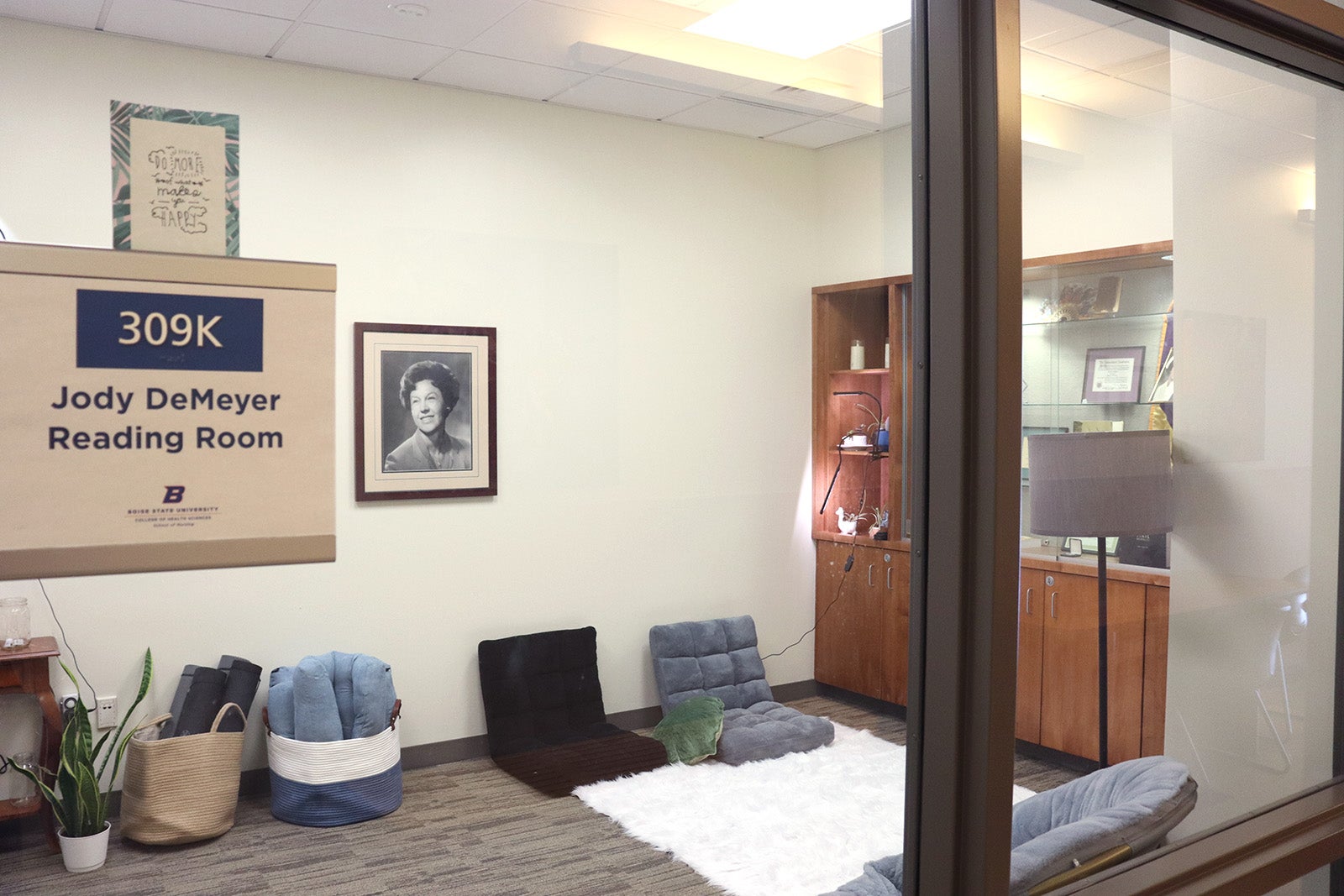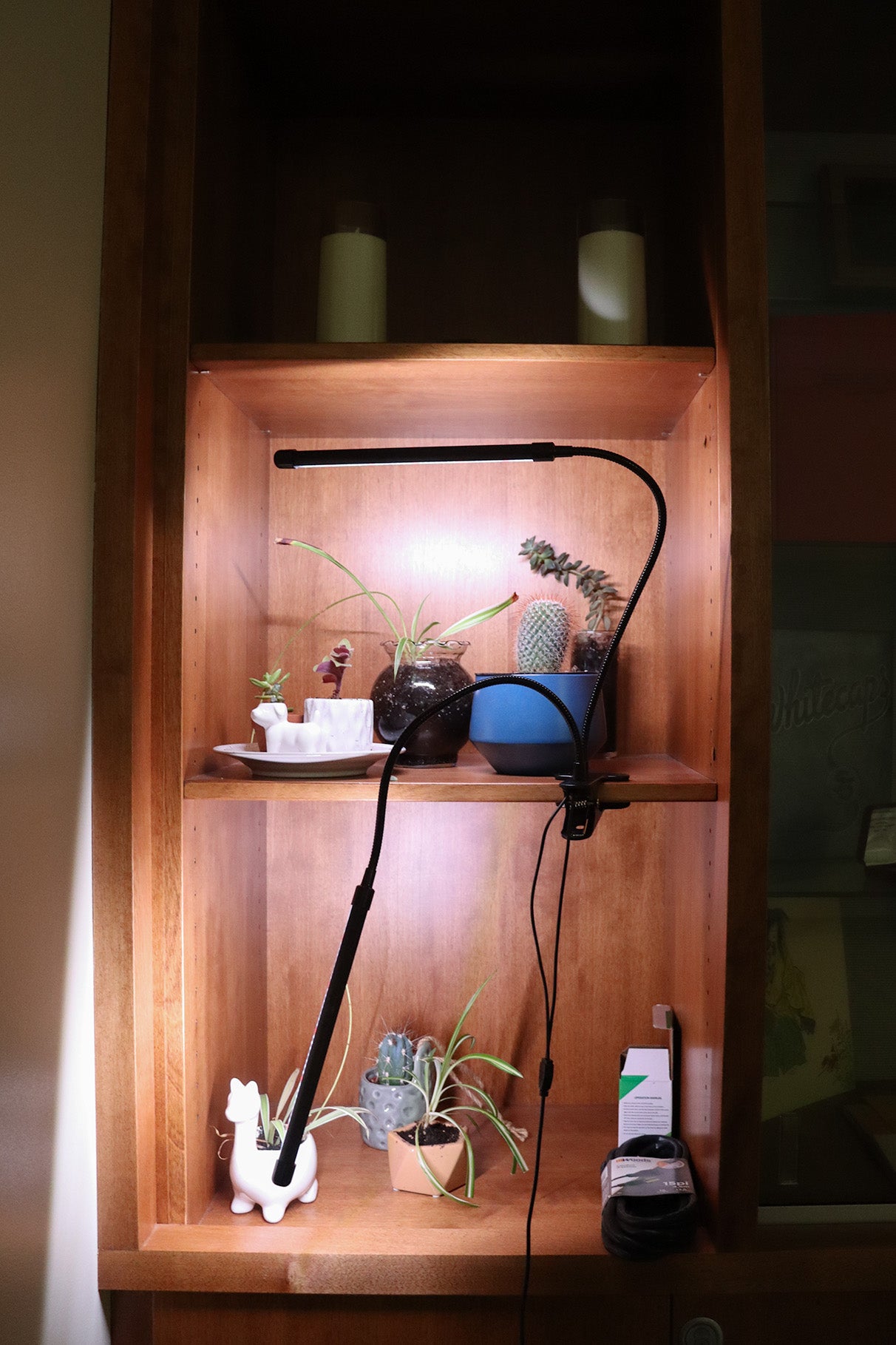Students may notice several new changes around the third floor of the Norco building this fall. The most obvious transformation is in the Jody DeMeyer Reading and Reflection room, which the Simulation Center team recently revamped as a self-care hub.
“Jody DeMeyer was a longtime friend of our school and she created an endowment so nurses would stay in the profession,” said Shelle Poole, divisional dean of the School of Nursing.

Though comfy chairs and a shaggy rug replaced the previous study table, the changes stick with DeMeyer’s intent for the original room – to provide a quiet space where students can just relax.
Poole and Amy Spurlock, associate divisional dean and chief nurse administrator of the School of Nursing, said the renovation is a “modern tribute” to what Demeyer has provided.
“The idea is to have this soothing space where [students] can relax and meditate if they want to, take some deep breaths, or decompress for ten minutes,” Spurlock said.
A brand new look

The reflection room now houses yoga mats, cushion chairs, potted plants, and recorded meditations, among other things.
“We want it to be a place where you come in and it does not feel like a closed little room in the university,” said Casey Blizzard, the simulation operations coordinator. “You want to kick off your shoes and stay a couple minutes.”
The room also ties into the ongoing research of Kelley Connor, the director of simulation-based education and research. Students can scan a QR code on the door to self-report their levels of stress or anxiety when entering and exiting the room. The data will help Connor assess the effectiveness of self-care efforts at the school.
Answering the call: Why the room matters
The past few years have been nothing if not stressful for nurses. The pandemic highlighted the essential nature of self-care as burnout scorched through the ranks of healthcare workers worldwide; the surgeon general’s most recent advisory focuses on how to build a healthy workforce in light of this crisis.
At the School of Nursing, students reported feeling increasingly anxious and stressed around simulation; because the scenarios reflect real-life practice, students feel a heightened level of pressure going into them.
To answer both their students’ needs and the national issue, the Simulation Center team created a self-care space that also parallels their ongoing efforts to develop an open, welcoming, safe culture.
The room is part of a holistic approach to nursing education that helps students understand the importance of self-care, especially since whatever they experience in clinical settings may have a ripple effect into other areas of their lives.
“We hope to give students self-care tools in the classroom and their broader environment,” said Connor. “We plan on running simulations where students can identify sources of stress and talk about self-care strategies they might use.”
Pairing self-care with simulation education helps students develop these methods of stress-management while in safe, low-stress environments. It gives students an outlet to try different techniques and find what works best for them before they need it in the workplace.
“Everything we do is built off of the same principle of simulation theory,” said Blizzard. “And that’s the idea that we want you to feel safe and do [things] here before you do it in practice.”
But it’s not just one room…
The third floor also hosts several new art exhibits. A few are designed to be temporary, whether that’s a wall for posting encouraging sticky notes or paintings that students can create with water, which merely evaporates.
The interactive art is just another outlet for students to express themselves and de-stress through activities with a “be here now” mentality.
The recently-appointed student café also holds a rotating gallery wall of six frames and will feature student art, beginning with the photographs of Cari Adams. Since so many of the third-floor laboratories and study rooms prohibit food and drink, this room affords students a space they can make their own, eat and relax.
“We’re revamping the entire floor to include self-care,” Blizzard said. At the end of the day, she said, the Simulation Center team hopes to equip nurses to “come out of school knowing how to take care of themselves better.”
If you’re interested in further supporting the health and well-being of nursing students, contact heatherjuaregui@boisestate.edu.